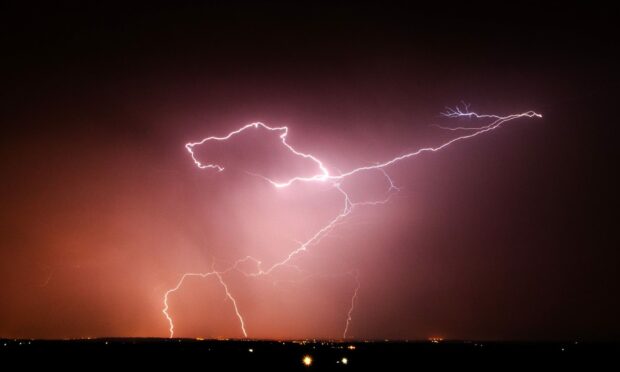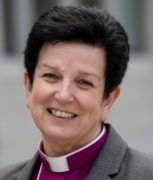In the last few weeks there have been incidences of extreme weather across the UK.
The worst occurences have been in Yorkshire and at Whaley Bridge in Derbyshire, where there has been a significant threat to life and dreadful damage to homes and businesses. Those people and places most affected will take a long time to recover.
The weather in Aberdeen has also been notable, with disruptive impact in some places. On an evening three weeks ago there was a torrential downpour of rain accompanied by a spectacular lightning storm. I have very old drains around my house which were overwhelmed by the volume of water, so we experienced local flooding.
More disruptive still, the building where we have our offices was struck by lightning. It took two weeks to repair the damage to the wiring related to the security and fire systems. During this time we were not able to use the offices, so were forced to work in cafes and other places where we were able to hold meetings and get access to wifi. On the same night St Andrew’s Cathedral in King Street was struck by lightning which burnt out the phone and broadband, with the same damage occurring that night to our cathedral in Dundee.
These disruptive weather-related incidents so close to home have led to some humorous banter. Some commented that they were surprised that our offices did not fare better, given that I am a bishop in a Christian church. Surely, people said, I should have had a little influence to keep things safe. Others joked that maybe this was some kind of judgement on me, had I been ‘bad’ in some way?
Behind these jokes is reference to the legal description that extreme weather and the damage it causes are ‘acts of God’. This is a phrase used especially by insurance companies for weather which is out of human control.
I find the jokes very amusing, but let us not be mistaken, these extreme weather incidents are not acts of God, but have come about as a consequence of our own actions; they arise from the way that we have been living. There have always been incidences of difficult and disturbing weather, but these are now intensifying and becoming more common because of climate change. The effects are being experienced around the world, with the long-term consequences for the world’s poorest people very significant indeed.
It is our actions, the day-to-day habits of how we live, that are causing the weather to be more extreme, and it will be down to us to make the necessary changes to protect ourselves and the planet.
We have been in denial about this for a long time, saying that there has always been occasional extreme weather, hence the term ‘acts of God’. Now scientists are agreed, and the evidence is substantial and convincing, we are experiencing a climate emergency of our own making. This year many of those who have been most vocal about the consequences of this emergency have been children, who have been calling out for change. They have been raising their voices in protest because so little is being done to make the changes necessary to protect the planet and its ecosystems. It is children who will experience the biggest impact of this emergency long term.
We need to change how we live and quickly. I find this a great challenge, and have some way to go in reducing my own carbon footprint. The climate emergency is so severe and so urgent, it is difficult to believe that doing small things like using public transport more often and turning off appliances when I am not using them are making any difference. But change does begin with small things, and as we all begin to live differently, there will be an impact.
There are other signs that give us hope, especially in Scotland, where there is considerable research and investment in renewable energy, alongside a growing commitment to change. For example, last week saw the opening of the new offshore wind-farm at Wick, the fourth largest in the world, able to power 450,000 homes. In July Aberdeen Climate Action published a report for the city and shire describing the changes that will need to take place locally. These relate to transport, agriculture and food, the disposal of waste and the management of our natural environment. We will need to see changes in all parts of our life, with a firm and decisive lead taken by politicians and planners at local and national level.
If we don’t make the changes necessary, and our lives become increasingly disrupted, there will be no point at all in blaming God. It is time to take responsibility for how things are, and make the changes that are necessary.
The Rt Rev Anne Dyer is Episcopalian Bishop of Aberdeen and Orkney and Scotland’s first female bishop

